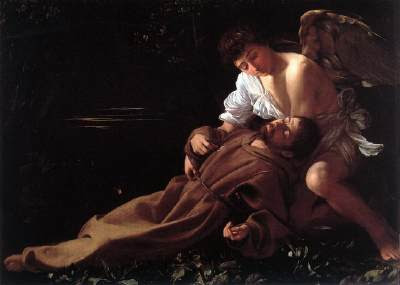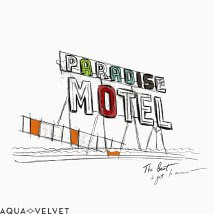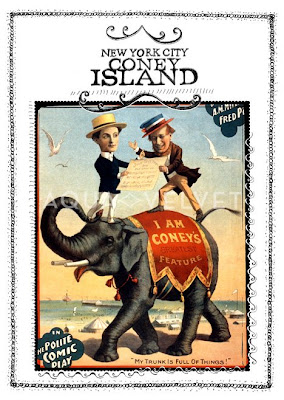Most Reverend William F. Murphy
Bishop of Rockville Centre
Chairman of the Committee on Domestic Justice and Human Development
United States Conference of Catholic Bishops
September 7, 2009
Over the years we Americans have redefined the summer by making Labor Day the “extra day of vacation” that recognizes the work we do throughout the year. There is nothing wrong with that. In fact looking at the history of the struggle for wages and benefits, I think that an extra “day off” for all Americans fits in with the spirit of the whole American experience of the meaning of work. It is a moment to recognize the value and dignity of work and the contribution and rights of the American worker. It is time well spent.
Labor Day this year comes at a time when we face a number of challenging problems, many of which cause us to reflect and ponder on what the future will bring. As complex and challenging as the current economic situation is and the new elements that challenge us all, Americans are still fundamentally an optimistic people. We have an abiding faith in the values that have shaped our nation and an ongoing commitment to work together to address the problems and build on the strengths of who we are. This attitude mirrors the deep and powerful virtue of hope that our Church and, in a special way, our Holy Father, Pope Benedict, have emphasized as a mark of all the faithful disciples of Jesus. We are called always “to give an accounting of the hope that is in us.”(cf. 1Pt 3:15) This is especially true in difficult times that can try our spirits and test our wills.
A New Encyclical
Earlier this summer, Pope Benedict XVI published his long awaited encyclical, Caritas in Veritate. This teaching of Benedict brings together a whole range of theological and social issues
in a perspective that is in some ways very new and challenging. The Holy Father covers a wide
gamut of subjects that reflect many of the Church’s traditional concerns in the social field while
placing them in broader anthropological and cultural context. In this way the encyclical reflects
questions that have long been central to the theological reflections of this Pontiff who constantly
plumbs the implications of understanding of the human person before God. The Pope reminds us, “the primary capital to be safeguarded and valued is…the human person in his or her integrity: Man is the source, the form and the aim of all economic and social life.” (#25)
The Pope revisits the traditional teachings of his predecessors on the value of the human person, the dignity of every human being, and the integral development of human society to promote human flourishing. His reflections reaffirm the teachings of Leo XIII on labor and Pius XI on subsidiarity. With John XXIII and John Paul II, he insists on the value of solidarity and focuses with a special emphasis on Paul VI’s passionate commitment to the Third World and the development of peoples.
In the new encyclical, the Holy Father affirms and extends traditional Catholic teaching on the centrality of work to the whole human experience. Decent work, according to the encyclical, “means work that expresses the essential dignity of every man and woman in the context of their particular society: work that is freely chosen, effectively associating workers, both men and women, with the development of their community; work that enables the worker to be respected and free from any form of discrimination; work that makes it possible for families to meet their needs and provide schooling for children, without the children themselves being forced into labor; work that permits the workers to organize themselves freely, and to make their voices heard; work that leaves enough room for re-discovering one’s roots at a personal, familial and spiritual level; work that guarantees those who have retired a decent standard of living.” (#63)
Pope Benedict renews and reminds us of the Church’s classic support for the right of workers to choose freely to form or join a union or other types of workers’ associations. Pope Benedict endorses this and adds to it the responsibility of workers and unions “to be open to the new perspectives that are emerging in the world of work.” (#64)
This Labor Day statement is not the place to give a complete overview of the new encyclical. It remains, however, a major point of reference for us all as we give thanks to God for the meaning with which God has endowed work as a reflection of the dignity of every worker, a “co-creator” with God in this world of human endeavor. That vision of cooperation with God in building up this world through our work underscores the need for us all to cooperate and collaborate with one another in making work and the workplace a project of human solidarity and mutual respect.
An Example of Respecting the Rights of Workers
In this Labor Day reflection, permit me to call your attention to a positive step forward in respect for workers in one crucial area of our life: health care. This year, after years of discussions, leaders in Catholic health ministry, the labor movement, and the Catholic bishops sought to apply our traditional teaching on work and workers and to offer some practical alternatives on how leaders of hospitals, unions, and others might apply our principles as an aid to reaching agreements in their own situations.
The principal participants— the Catholic Health Association (CHA), the AFL/CIO, the Service Employees International Union (SEIU), and the U.S. Conference of Catholic Bishops (USCCB)—reached agreement that offers guidance and options on how workers can make a free decision about whether or not they want to be represented by a union. They agreed on basic principles including mutual respect and open and honest communication as ‘guides’ to appropriate conduct for both employers and union representatives. This paves the way for workers to make informed decisions without undue influence or pressure from either side. The basic elements of such an approach include mutual respect, truth, and a commitment to let the workers decide whether or not they want to be represented by a union. This was not easy or simple. There were many different points of view and perspectives that at times seemed irreconcilable. The dialogue was long, candid and constructive. It led to a significant consensus statement entitled, respecting the Just Rights of Workers: Guidance and Options for Catholic Health Care and Unions.
This project achieved a significant accomplishment: a consensus among all the parties on a set of principles, processes, and guidelines for a respectful and harmonious approach to let workers in Catholic health care facilities make free choices about unionization. This is offered for voluntary use to help facilitate worker’s choices in an atmosphere of mutual respect and cooperation for the good of the workers themselves.
Special thanks are due to the leadership of the CHA, AFL/CIO, and SEIU. All involved join me in special appreciation for the patient and wise leadership of Cardinal Theodore McCarrick. Thanks in no small measure go as well to the guidance of the Feerick Center at Fordham law School under the direction of Dean John Feerick. The dialogue tried to look at real situations and genuine differences in light of some basic themes in Catholic social teaching. The document offers some practical guidance and alternatives on how leaders of hospitals, unions, and others might apply these principles by adapting them to their own situations.
Because Catholic health care is a ministry, leadership must reflect in its own operations the words and example of Jesus. For the Church, health care is a continuation of the healing
mission of Jesus. This is a gift to both the Church and to society at large. In our nation, one
person out of six receives care at one of more than 600 Catholic hospitals or 1,200 other Catholic health care ministries. In the past, tension and misunderstandings too often marred relations between Catholic health care and labor. In an effort to look at that and move beyond it, the participants in the dialogue sought to find alternatives that would structure and guide a positive
process with the good of the worker as the centerpiece.
This group of leaders, representing all the principal entities involved, affirmed two key values: (1) the central role of workers themselves in making choices about representation and (2) the principle of mutual agreement between employers and unions on the means and methods to
assure that workers could make their choices freely and fairly. The document calls for civil
dialogue between unions and employers focusing on how the workers’ right to decide will be respected. The heart of this consensus is that it is up to workers—not bishops, hospital managers, or union leaders—to decide “through a fair process” whether or not to be represented by a union and if so, which union. It is our hope that this voluntary guidance and process agreement will prove to be a significant help for greater respect for workers on behalf of all interested parties now and in the future.
Other Issues in Health Care Reform
This Labor Day comes as our nation is engaged in a wider debate on reform of the health care system. As Congress discusses various proposals, the USCCB is committed to bring to this
challenging issue the principles of Catholic social teaching as important truths that have the
capacity to analyze and measure each serious proposal brought forward. The Catholic bishops
continue to work for health care that is accessible, affordable, and respects the life and dignity of
every human being from the moment of conception to the moment of natural death. To cite Pope Benedict, “A society lacks solid foundations when, on the one hand, it asserts values such as the
dignity of the human person, justice and peace, but then, on the other hand, radically acts to the
contrary by allowing or tolerating a variety of ways in which human life is devalued and violated, especially where it is weak or marginalized.” (#15)
Health care is an essential good for every human person. In a society like ours, no one should lack access to decent health care. Perhaps no other topic has engaged such a large number of citizens or produced such a wide range of opinions and points of view. This can help us avoid the pitfalls that occur when legislation passes without enough dialogue and reflection. I urge you to join the bishops in advocating for health care reform that is truly universal and protects human
life at every stage of development. We must remain resolute in urging the federal government to continue its essential and longstanding prohibitions on abortion funding and abortion mandates.
Our government and laws must also retain explicit protection for the freedom of conscience of health care workers and health care institutions. For more on USCCB advocacy on health care reform see our website,
http://www.usccb.org/healthcare/.
Somewhat different but still a matter of basic human dignity is the challenge of immigration reform. This too has a part in the current health care debates. As a nation we have to be concerned about the integrity and safety of our borders. But that cannot overwhelm issues of
respect for the dignity of immigrants who come to our country for so many varying political and
economic reasons. We are a nation of laws. We as a people respect the laws of our country and
state and local municipality. New peoples also are expected to do the same as good citizens or as
good people desirous of becoming citizens. Most immigrants work hard, pay taxes, contribute to
social security, and are valuable members of our society. Yet too often these same immigrants,
including legal immigrants, are denied access to health care services. This should not happen in a society that respects the rights and dignity of every person. For all these reasons our immigration law and related laws must guarantee fair treatment to the millions of immigrants in our country who contribute to our economy and the common good. This is not an issue of “us” and “them.”
They, the new peoples among us, are an integral part of the “us” that constitutes the great diversity that is our nation. In that context, we bishops are convinced that it is imperative that
legal immigrants be included in any fair and just health care legislation that seeks to offer adequate care that is universal and advances the common good of all in our country. An adequate safety net should remain in place for those who still remain without health care coverage. (For more information on the bishops’ efforts on immigration see:
http://www.justiceforimmigrants.org/)
Conclusion
As we seek to rebuild our economy, produce a better health care system, and improve the
immigration system, we are presented with unique opportunities to advance the common good.
Pope Benedict’s new encyclical insists that the ethical dimensions of economic life begin with protecting the life and dignity of all, respect for work and the rights of workers, and a genuine
commitment to the common good. As the Holy Father points out: “it is a good that is sought not
for its own sake, but for the people who belong to the social community and who can only really
and effectively pursue their good within it. To desire the common good and strive towards it is a
requirement of justice and charity.” (emphasis in the original, #7)
On this Labor Day, let us remember those without work and without hope. Too often in our public discourse anger trumps wisdom, myth outweighs fact, and slogans replace solutions. We can work together and rebuild our economy on the moral principles and ethical values outlined by Pope Benedict in his new encyclical. This Labor Day, we should take a moment to pray for all workers and all those without work. We should also ask God’s help in living out the Church’s call to defend human life and dignity, to protect workers and their rights, and to stand with the poor and vulnerable in difficult economic times. In his new encyclical, Pope Benedict challenges and reassures us: “As we contemplate the vast amount of work to be done, we are sustained by our faith that God is present alongside those who come together in his name to work for justice.” (#78)
May God bless you this Labor Day and may God watch over and bless those who are committed to the care and protection of all the members of our nation who share the American dream of “liberty and justice for all.”






 St. Padre Pio da Pietrelcina
St. Padre Pio da Pietrelcina
 Delicious clutch by JuliaSherryDesigns:
Delicious clutch by JuliaSherryDesigns:
















